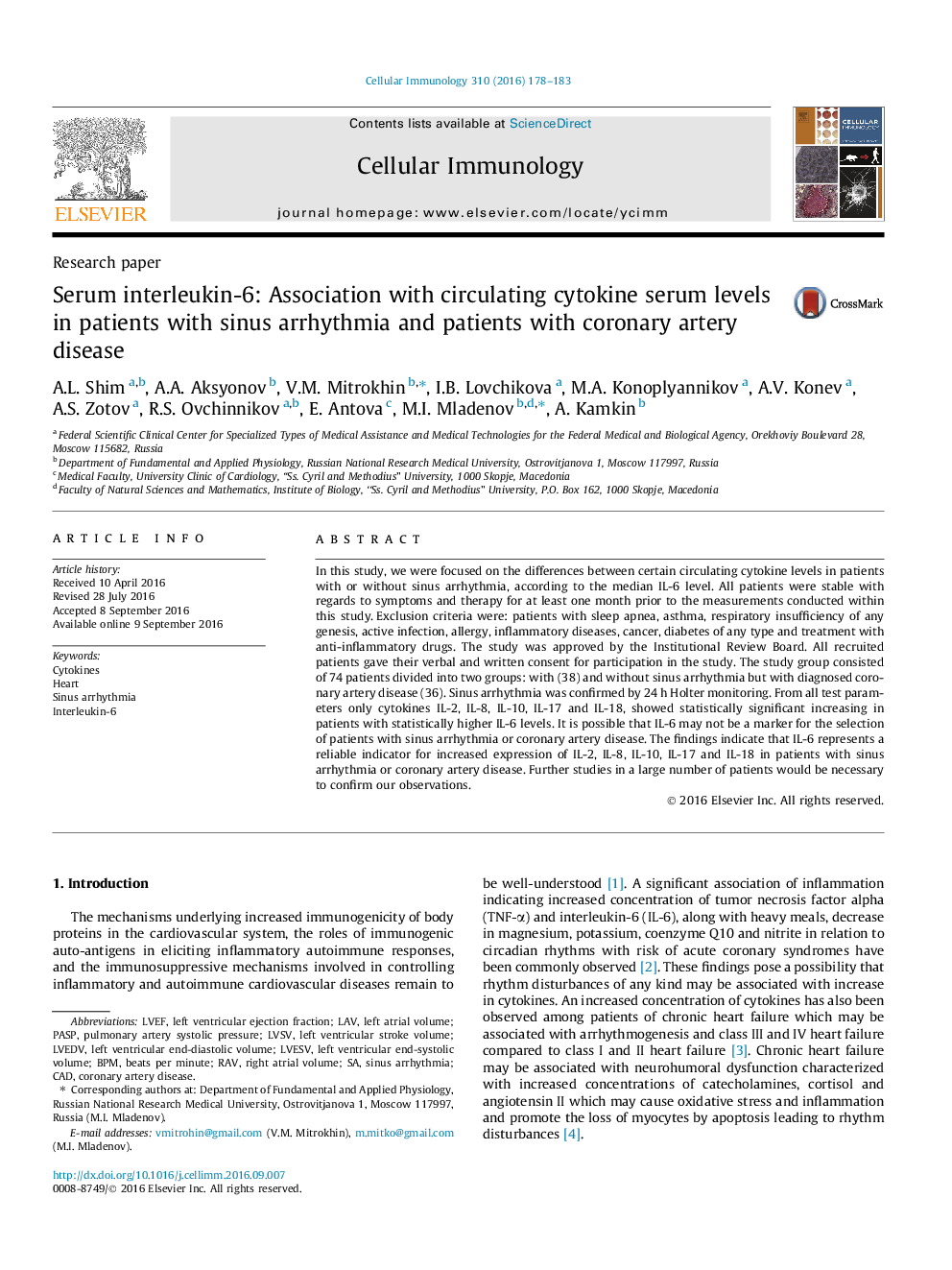| Article ID | Journal | Published Year | Pages | File Type |
|---|---|---|---|---|
| 5530732 | Cellular Immunology | 2016 | 6 Pages |
â¢It is possible that IL-6 may not be a marker for the selection of patients with sinus arrhythmia or coronary artery disease.â¢IL-6 only represents a reliable indicator for increased expression of IL-2, IL-8, IL-17 and IL-18 in patients with heart rhythm disorders or coronary artery disease.â¢Clinical and biochemical parameters did not show any dependence of median serum IL-6 values in patients with heart rhythm disorders or coronary artery disease.
In this study, we were focused on the differences between certain circulating cytokine levels in patients with or without sinus arrhythmia, according to the median IL-6 level. All patients were stable with regards to symptoms and therapy for at least one month prior to the measurements conducted within this study. Exclusion criteria were: patients with sleep apnea, asthma, respiratory insufficiency of any genesis, active infection, allergy, inflammatory diseases, cancer, diabetes of any type and treatment with anti-inflammatory drugs. The study was approved by the Institutional Review Board. All recruited patients gave their verbal and written consent for participation in the study. The study group consisted of 74 patients divided into two groups: with (38) and without sinus arrhythmia but with diagnosed coronary artery disease (36). Sinus arrhythmia was confirmed by 24 h Holter monitoring. From all test parameters only cytokines IL-2, IL-8, IL-10, IL-17 and IL-18, showed statistically significant increasing in patients with statistically higher IL-6 levels. It is possible that IL-6 may not be a marker for the selection of patients with sinus arrhythmia or coronary artery disease. The findings indicate that IL-6 represents a reliable indicator for increased expression of IL-2, IL-8, IL-10, IL-17 and IL-18 in patients with sinus arrhythmia or coronary artery disease. Further studies in a large number of patients would be necessary to confirm our observations.
